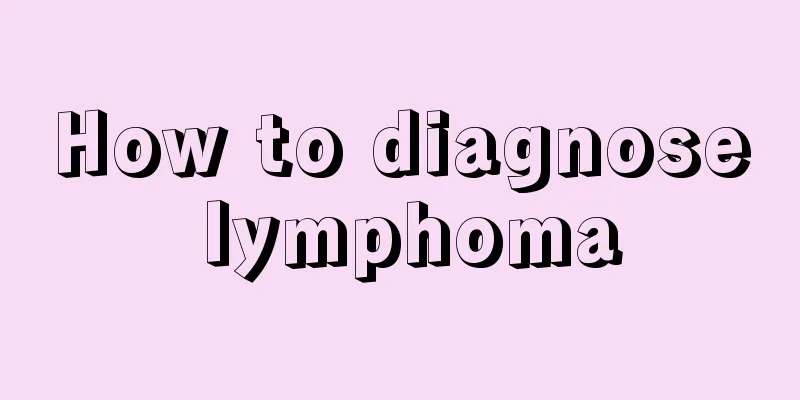What are the specific treatments for uterine cancer

|
What are the treatments for uterine cancer? I believe this is a question that most patients are concerned about. Understanding the treatments for uterine cancer plays an important role in the treatment of uterine cancer for patients. Generally speaking, the treatment of uterine cancer is mainly surgery, which can be assisted by radiotherapy and chemotherapy. It can play a significant role. Let's take a look at the experts' introduction to the treatments for uterine cancer. Treatment of uterine cancer: hormone and chemotherapy The biggest advantage of progestin therapy in the treatment of uterine cancer is that it has few adverse reactions, especially no serious adverse reactions of general chemotherapy drugs to suppress bone marrow, and it is easy to use and does not require hospitalization. However, there are occasional pain and redness at the injection site. A few patients have mild edema, high blood pressure, acne and prostate furunculosis, but they can all be tolerated, so patients are willing to accept it. Patients with liver dysfunction should not use it. Treatment of uterine cancer 2. Radiation therapy The treatment of stage I endometrial cancer should also be based on pathological differentiation, the depth of tumor infiltration into the muscle layer, lymph node metastasis and whether the exfoliated cells in the abdominal cavity are positive, so as to consider comprehensive radiotherapy to improve the cure rate. In addition, simple radiotherapy or chemotherapy combined is often used for elderly patients, those with surgical contraindications and a small number of patients with advanced lesions with multiple organ involvement or palliative treatment of bleeding caused by unresectable tumors. Treatment of advanced cancer and recurrent cancer: Stage III and IV cancers are mostly not completely removed by surgery. Currently, radiotherapy (intracavitary radium therapy plus external irradiation) and chemotherapy are generally used. The most common recurrence sites of endometrial cancer are the pelvis, vaginal vault and septum. If it is a pelvic recurrence, patients who have not undergone radiation after hysterectomy should first receive radiotherapy, which includes full pelvic external irradiation and vaginal intravenous radium or cesium therapy, which is one of the important methods for treating uterine cancer. Treatment of uterine cancer: surgical treatment At present, a relatively consistent opinion has been formed, that is, most stage I and II endometrial cancers can be cured by surgery. For stage Ia G1 cancer, it can be cured by total hysterectomy plus bilateral salpingo-oophorectomy. For stage I poorly differentiated cancer (G2 and G3), total hysterectomy plus bilateral salpingo-oophorectomy combined with radiotherapy is better than surgery alone. When the diameter of the uterine cavity is >10cm, this combination of therapy is also appropriate. The treatment of stage II endometrial cancer is basically the same as that of cervical cancer, that is, extensive hysterectomy plus pelvic lymph node dissection. However, the best results reported so far are combined treatments with hysterectomy after external and intracavitary radiation. This may be because uterine cancer generally develops slowly, and most lesions are still confined to the uterus. Even if there is a possibility of metastasis to the parauterine and pelvic lymph nodes, preoperative radiotherapy is expected to kill the tumor and shrink the uterine cancer. Even if the subsequent surgery is not extensive, it can be cured; On the other hand, most patients with uterine cancer are over 50 years old, many are obese, and have important medical complications such as diabetes and hypertension, making them unsuitable for more extensive hysterectomy and regional lymph node resection, so preoperative radiotherapy has its auxiliary effect. The above introduces the treatment methods of uterine cancer. I believe everyone has a general understanding of it. If the treatment of advanced cancer is more important to relieve pain, improve the quality of life, control the disease, and prolong life, it is also very important to adopt a treatment method combined with traditional Chinese medicine. If you have more questions, please consult our doctors and the experts will give you detailed answers. I wish you health and happiness! Uterine cancer http://www..com.cn/zhongliu/zg/ |
<<: How long can one live with advanced colorectal cancer
>>: How to treat advanced colorectal cancer
Recommend
What are the magical uses of lavender essential oil
Lavender also plays an important role in our live...
What are the early symptoms of nasopharyngeal cancer? What tests should be done to check for nasopharyngeal cancer
Diseases such as nasopharyngeal cancer should be ...
What should I do about loose stools
The problem of loose stools must be treated and r...
Brucellosis symptoms vary at different times, so don't ignore them
Brucellosis is a common disease in Northeast Chin...
Can early stage lung cancer be cured?
Lung cancer is a malignant tumor that originates ...
What is the difference between a tattoo and a tattoo
As more and more people become interested in tatt...
What are the early symptoms and signs of colon cancer
Early symptoms and signs of colon cancer may incl...
Lactate dehydrogenase assay method
We know that there are various enzymes in real li...
Does sweet potato cause internal heat?
Everyone is very familiar with sweet potatoes. Sw...
The pros and cons of skipping dinner
There are always some controversies on the issue ...
Can bone cancer be cured in its early stages?
Can bone cancer be treated in its early stages? Y...
What are the symptoms of night sweats
The symptom of night sweats is abnormally excessi...
Secondary liver cancer develops slowly and is difficult to diagnose
The liver is one of the most common sites for liv...
What should I do if chemotherapy is not effective in late-stage lung cancer?
In the treatment method combining chemotherapy wi...
Can I get eyebrow tattoo after six months of thyroid cancer?
Whether thyroid cancer patients can get eyebrow t...









